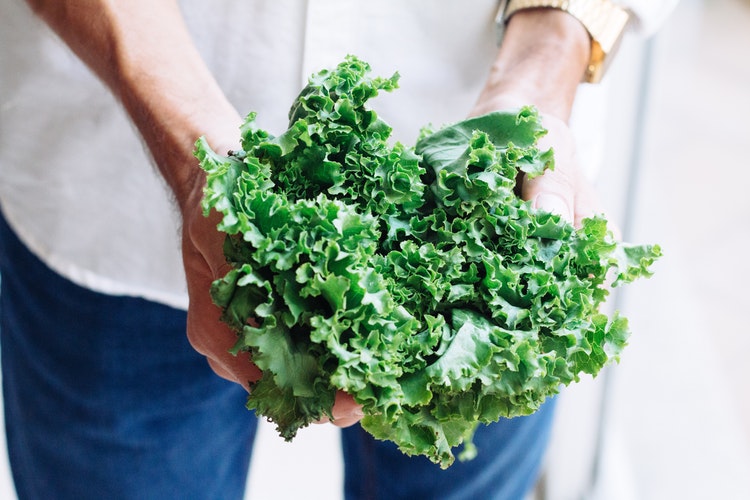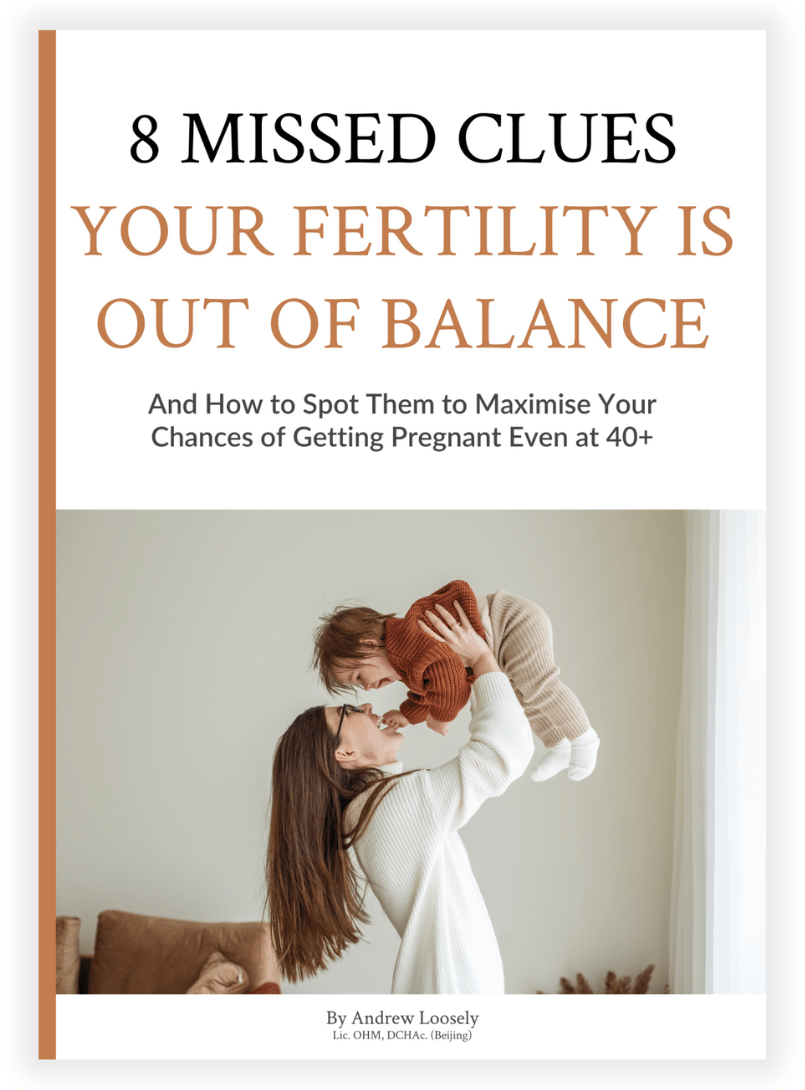Can Kale Help Reduce Stress?

With so many nutritional goodies kale is hands-down one of the most nutrient dense vegetables we currently have!
It contains a good variety of nutrients including 47mg of magnesium per 100g of kale, which makes it a great source of magnesium.
Magnesium is one of the Macro-Minerals that we must have to support our health, and there’s one key thing that makes us use it up:
STRESS!
Having organic Kale in your diet can help support your body’s ability to deal with stress, as well as generally support your nutrient intake. See the Chinese medicine uses further down this post too, on using kale as medicine.
Key nutrients of Kale are:
Vitamin B Complex: Overall this Vitamin group is necessary for energy production and the synthesis and repair of DNA and RNA. This is vital for your overall health but also for cell function, which includes egg and sperm cells and their genetic health and quality.
B vitamins are also required to help you metabolise (break down and use) carbohydrates, proteins and fats. They may also have a calming effect and help to maintain a healthy nervous system. They are particularly helpful for the maintenance of healthy skin and muscle tone.
Long term use of birth control can cause Vitamin B deficiencies.
Vitamin A: Is necessary for the growth and repair of many body cells including bones, teeth, collagen and cartilage. It’s also involved in cell differentiation where cells become specific types of cells such as a liver cell or a blood cell. This is vital for the development of your healthy baby, and so Vitamin A should be sufficient in your diet in a food form. Supplementation does not offer balanced forms of Vitamin A.
Vitamin K: Vitamin K is an essential nutrient necessary for responding to injuries as it regulates normal blood clotting. By assisting the transport of calcium throughout the body Vitamin K may also be helpful for bone health. It may reduce bone loss, and decrease risk of bone fractures. It also may help to prevent calcification of arteries and other soft tissue.
Vitamin K can be particularly useful if you suffer from heavy and/or painful periods as it can help slow down the blood flow and reduce cramping.
Vitamin C: Vitamin C helps to repair and regenerate tissues, help with the absorption of iron, prevent scurvy, and decrease total and LDL (“bad”) cholesterol and triglycerides.
Research shows that vitamin C protects against free radicals due to its antioxidant nature. It also helps neutralize the effects of nitrites (a group of commonly used preservatives), which many people come into contact with daily.
For fertility health vitamin C is important in the process of absorption and also in its ability to support the luteal phase of the menstrual cycle.
Supplement forms of vitamin C are usually inferior compared to natural sources and my advice is to obtain this nutrient from your diet daily through fresh vegetables and fruit.
Potassium: Is an electrolyte which counteracts the effects of sodium, helping to maintain consistent blood pressure levels – another important element for pregnancy. Many processes in the body rely on a small electric current to function, and electrolytes provide this current.
Potassium is required to keep the brain, heart, kidneys, muscle tissue, and other important organs in good condition. Its health benefits are; boosting the immune system, improving bone health, improving muscle strength, blood sugar regulation, blood pressure regulation, maintaining optimal nerve and brain function.
Manganese: is a naturally occurring mineral which aids in the formation of connective tissue, bones, blood-clotting factors, and sex hormones. It is a powerful antioxidant which neutralises the damaging particles of free radicals. It plays a role in fat and carbohydrate metabolism, calcium absorption, and blood sugar regulation.
Iron: Is a mineral that the body uses to carry oxygen in the blood and plays a key role in strengthening the immune system and helps regulate body temperature.
Phosphorus: Is an element that plays an important role in how the body uses carbohydrates and fats. It is also needed for the body to make protein for the growth, maintenance, and repair of cells and tissues. It is essential in our diet and particularly in children when growth and development occurs.
The health benefits of Phosphorus are: improved digestion; formation of healthy bone; hormone balance; kidney health; elimination of muscle weakness and fatigue; muscle maintenance; and repair of cells and tissues.
Calcium: Calcium is needed to build and maintain strong bones, support heart health, and for optimal function of the muscles and nerves. It is also required alongside Vitamin D to aid in its use throughout the body.
CHINESE FERTILITY MEDICINE USE IT TO:
- Treat Blood Deficiency
- Treat Qi Deficiency
- Reduce Bleeding
**
BLOOD DEFICIENCY**
Blood deficiency is a Chinese Fertility Medicine term used to describe an imbalance in the quality of the blood.
The blood is responsible for circulating nutrients throughout the body to all of your cells, including egg and sperm cells.
When it is deficient the blood can’t properly nourish the body and certain aspects of health get out of balance.
This can impact egg and sperm health as the deficient blood is unable to transport necessary nutrients to the eggs and sperm – causing a depletion in their quality, quantity, and activity.
If the Blood deficiency reaches a deeper level of imbalance you will see physiological changes in the blood, such as reduced iron, haemoglobin, ferritin, B-vitamins and other nutrients. You may also see changes in the volume and quantity of the blood cells and it’s clotting ability or nature.
Click here to read more about Blood Deficiency
QI DEFICIENCY
Qi is the word used in Chinese Fertility Medicine to describe energy, life force, or vitality inside and outside the body.
Qi is the non-physical aspect of your body that makes all of your organs and systems work.
This means that it’s vital for the function of all aspects of your fertility, and pregnancy health too. When your Qi is deficient your body struggles to function efficiently, and this can lead to a variety of fertility issues.
When Qi becomes more severely deficient you will likely present with hormone imbalance, typically with reduced Progesterone, Testosterone and/or FSH levels. In some cases, the FSH can rise and present itself as being elevated, due to the ovaries or testes being underactive and sluggish (tired).
Click here to read more about Qi Deficiency
REDUCE BLEEDING
Due to its high vitamin K content, kale can help to slow down mildly heavy blood loss.
This is helpful when there is thin, and pale coloured blood that is not clotted or dark in colour. This approach would typically be applied to people that have been diagnosed with Blood deficiency, as above, when there are no signs of clotting or stagnation.
Season available: Midwinter to early spring
How it’s typically cooked: The best way to eat kale is steamed, sautéed or boiled. It’s a deliciously healthy addition to a nice soup! Kale can be used in soups, stews or even lightly roasted into kale chips.
Cautions: Be careful if you are on blood-thinning medication such as warfarin, heparin or clexane. Check with your Dr before consuming alongside blood-thinning medications. Kale is also warming in nature so best avoided for people that suffer with ‘Heat’ conditions as diagnosed in Chinese medicine.
Disclaimer: https://naturalfertilityexpert.com/disclaimer/
Need more help?

Free Guide
8 MISSED CLUES YOUR FERTILITY IS OUT OF BALANCE – even if you’re over 40
Discover What’s Stopping You Having Your Baby
8 MISSED CLUES YOUR FERTILITY IS OUT OF BALANCE – even if you’re over 40
If you’re 40 or over and pregnancy isn’t happening for you naturally, or with IVF, then this guide will help you discover why being 40+ isn’t a barrier to having a baby – as long as you identify the root cause of your fertility issues and then bring your body back into balance.